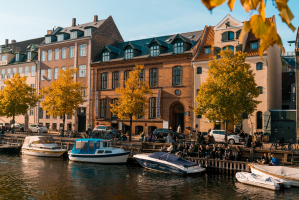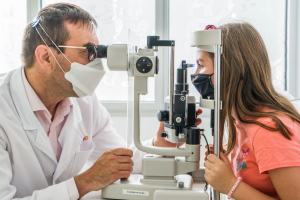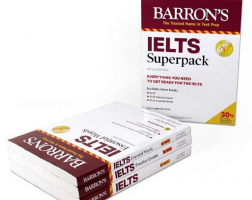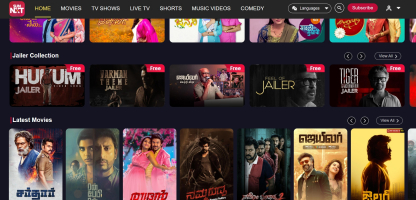Top 10 Best Countries for Education
Education is the foundation of a nation. Therefore, the quality of education is always the government's top concern. Where are the countries with the best ... read more...quality education in the world? Toplist will bring information about the above topic through the following article.
-
The UK is internationally renowned for its quality education with high standards to create the most well-rounded generations of students. In the UK, children aged 5 - 16 get a completely free education. Around 94% of pupils in the UK, and the rest of the UK, receive their education for free from public funds, while 6% attend fee-based independent schools or study at home.
Full-time education is compulsory for all children aged 5 to 16 across England. This may be offered by state schools, independent schools, or homeschooling. The British education system includes Primary (4-11 years old), Secondary (11-16 years old), and University or other higher levels. In the UK, students complete 13 years of general education before going on to university. Undergraduate is 3 years and graduate is 1 year.
It is no coincidence that the UK capital London is considered the capital of higher education in the world. With four universities ranked in the top ten in the world, London has the highest number of top-ranked universities worldwide. Every year, the UK welcomes more than 400,000 international students to study at undergraduate and postgraduate levels, and the reason is simple. Ranked among the top universities in the world, UK universities have a reputation for providing students with the skills employers are looking for.
In addition to classroom hours, you also have the opportunity to interact directly with teachers through refresher lessons, lively discussions, and practical projects, helping to improve your ability to think sharp. creativity and confidence. You will not only receive knowledge from the lecture halls of the most famous universities in the world with a long teaching tradition but also have access to the most advanced equipment thanks to the prestige of the Kingdom.
Quality Index: 78.2
Opportunity Index: 69.79UK school education system and everything You want to know about! (youtube: StudiesINFO) 10 Best Universities In The United Kingdom For International Students (youtube: Grace Media) -
The American education system offers a wide variety of options for international students. There are thousands of schools, diverse programs, and locations that the choice can be overwhelming for students, even those from the United States. In the US education system, 88% of students go to public schools, 9% attend schools run by religious organizations, 1% attend private schools, and 2% study at home. Public high schools are usually only for local students and hardly accept international students. Some schools accept international students through a cultural exchange program.
When you begin your school search, you must be familiar with the American education system. Understanding the American education system will help you develop a study plan that is right for you.
A very unique feature of the American education system is that it is possible to change majors many times if it is found that the major is not suitable. The American education system is very flexible. Changing majors can involve taking more courses, costing more time and money.
Quality Index: 72
Opportunity Index: 68.74
American School System (youtube: San Juan Unified School District San Juan Unified School District) Best Universities In The United States (2021) | U.S Best Universities | TOP50 (youtube: anking Show) -
Australia has more than a thousand universities, training colleges, institutes, and language schools, offering international students around 25,000 courses. The quality of Australian education and training is recognized around the world.
Known for its high-quality education and world-renowned universities, education in Australia is the first choice of many international students. The Australian curriculum puts quality at the heart of preparing students for the best future. Schools that aim to develop students to become independent and successful learners; confident and creative individuals; active and informed citizens – to give students the skills, knowledge, and competencies to thrive in a globalized world.
The Australian education system is distinguished from many other countries by the Australian Qualifications Framework (AQF). The AQF was established in 1995 and is a national policy covering qualifications from the education sector. The AQF has 10 levels and links the general education, vocational, and university levels into one national system. This allows you to easily move from one level of study to the next and from one institution to another. It allows for choice and flexibility in career planning. Despite its relatively small population, Australia has produced many high achievers in science, technology, and the arts. So the Australian education system is one of the best in the world.
Opportunity Index: 67.52
Quality Index: 70.5Meet Australia's Top 10 Universities 2019 (youtube: Top Universities) Australia's Education System wide (youtube: Anna Kavelj) -
A small country with an area of over 41,000 square kilometers with a population of 17 million, the Netherlands ranks 11th on US News and World Report's Best Country for Education rankings in 2018. There are about 3.5 million students - students study in more than 8,700 schools every day. The educational program is taught in Dutch but many schools teach in English as well.
The Netherlands is among the top countries with the best quality education in Europe. Equal study opportunities for local students as well as international students depending on their interests. Students can choose to study research-oriented at research universities or application-oriented at universities of applied sciences.
One of the things that makes the Dutch education quality is freedom. Schools can decide what and how to teach. Of course, the government also has regulations on the number of study hours per year, exam goals. Education in the Netherlands is administered by the Ministry of Education, Culture, and Science (Ministerie van Onderwijs, Cultuur en Wetenschap). The main content of the article includes the following sections:
- Primary Education (Primair Onderwijs/PO).
- Secondary Education (Voortgezet Onderwijs/VO).
- Vocational secondary education (Middelbaar Beroepsonderwijs/MBO).
- Higher Education (Hoger Onderwijs/HO).
- Diploma system in the Netherlands.
According to Dutch law, children are required to attend school from the age of 5 to 17. After this age, students can choose the appropriate learning path.
Quality Index: 70.3
Opportunity Index: 67.21Netherlands Education System (youtube: Genelos Marciano) Top 5 Universities in Netherlands for International Students (youtube: Matrix Of International Universities) -
Talking about studying abroad in Northern Europe, it is impossible not to mention the peaceful country of Sweden with the world's best social security regime, and the home of famous brands such as IKEA or H&M. The Swedes' philosophy of life "Lagom" (knowing enough is freedom) is also one of the "specialties" that make millions of international students come here to study every year.
The education system in Sweden is a compulsory education system for everyone between the ages of 7 and 16. Like most schools in the Northern Hemisphere, Swedish education has classes starting in January. August to June next year, with a two-week holiday from late December to early January. Most of the education system in Sweden is run by the government of the city where the school is located. There are also schools funded by public funds, called private schools. Some private schools are religious; others focus on certain goals (engineering schools, etc.). There are boarding schools in Sweden, but these are few and far between and are still monitored in some way by the government.
Sweden has an extremely advanced education, one of the tops in the world with many prestigious universities, constantly appearing in the list of the best schools in the world according to the assessment of Universitas21, Times Higher Education and Tables. Academic Ranking of World Universities.
The country's education focuses on developing the ability to reason logically and rigorously, and perhaps this is also the reason why Sweden owns countless Nobel Prizes from literature to science and technology.
Quality Index: 70.1
Opportunity Index: 66.96
10 Universities in Sweden for International Students | Study in Sweden | Scholarships in Sweden (youtube: Ask Scholars dotcom Ask Scholars dotcom) Swedish school system (youtube: Find Solutions From Sweden ) -
Education in France is thought of globally as competitive and exceptional once it involves giving students high-quality learning expertise. This is often a result of the French government and therefore the country perceives the importance of education, therefore they still give substantial cash towards their education systems. Although the French unendingly values their education, problems like failing to assist students associated with an archaic university system area unit consideration down the standard of education in France.
For French youngsters, education in France begins in preschool (maternelle) at an associate unbelievably young age. 52 % of French youngsters are unlisted in preschool at age two whereas one hundred pc of kids begin preschool at age three. However, school is just required for youngsters at the age of six.
In France, their area unit 3 styles of diplomas recognized by countries around the world normally and, therefore, the EEC particularly. That is:
- Bachelor's Degree (Licence or License professionnal).
- Master's Degree (Master).
- Doctor (Doctorat).
Quality Index: 69.9
Opportunity Index: 66.3Studying abroad: Why foreign students choose France (youtube: FRANCE 24 English) 5 Best Universities in France for International Students (youtube: World Scholarship Forum) -
The Danish education and training system is a comprehensive, high-quality, efficient system that provides educational opportunities for all Danes and provides the Danish labor market with skilled workers. Members with high standards, enthusiasm, and competitive spirit.
A global standard of early childhood education and care means easy learning through games and socializing for all children and their working parents.
Denmark ranks highly among countries in the world (second out of 60) in basic training, technology, science, and human resources that meet the needs of business, and in employee motivation. A core component of Vocational education and training in Denmark is the highly effective principles of parallel learning. This parallel learning combines learning in the workplace right at companies with learning at vocational training schools. In some areas, the parallel system also includes upper secondary synthesis courses and exams that facilitate access to higher education. Labor market partners are deeply involved in the training system as part of a training program that ensures the practicality, quality, and resonance of a dynamic and responsive system.Quality Index: 69.8
Opportunity Index: 62.54
Top 5 Universities in Denmark for International Students (youtube: Matrix Of International Universities Matrix Of International Universities) The Danish educational system (youtube: Studievalg Danmark) -
Education is one of the top priorities of the Canadian government. Education is very important to Canadians and the nationally consistent standards for education are very high. Under the Canadian constitution, Education is accountable to the provinces, which means that there are significant differences between the education systems of different provinces. Education in Canada is largely provided, publicly funded, and supervised by federal, provincial, and local governments. Education is under the jurisdiction of the province and the curriculum is supervised by the province.
Depending on the province, schools go to grade 11 or 12, generally until age 16. Children then have the option of continuing their education at university, college, or vocational training.
College and university education in Canada is the responsibility of individual provinces and territories. The provincial government provides the majority of funding for educational institutions, with the remainder coming from tuition fees, the federal government, and research grants. Canada is very proud of its universities and colleges. There is no formal ranking system, and selections are often based on geographic convenience and the reputation of a particular course.
Quality Index: 69.8
Opportunity Index: 61.01Why you should study in Canada: quality of education (youtube: Conestoga College International) Best Universities in Canada 2021। Top 10 Best University in Canada (youtube: University Hub University Hub) -
Germany has a high-quality education system and is the fourth most liveable country in the world according to a 2019 survey by US News and World Report.
Unlike many countries with only one high school system, Germany has 5 models of high schools with different characteristics, quality of students, and several years of study. Gymnasium (specialized school) for advanced students. Students will study from 5th to 12th grade or 13th grade depending on the state. Gymnasium focuses on subjects such as Foreign Languages, Mathematics, Physics, and Chemistry, suitable for students who intend to study intensively. Graduating from Gymnasium, students will receive the Baccalaureate (Abitur), which is a ticket to enter university.
In Germany, education is considered as one of the important factors for the development of the country. Therefore, university students will not have to pay tuition fees, only for textbooks, housing, or living expenses if studying away from home. International students also have the opportunity to study at university for free or at a very low cost in Germany. According to the German Academic Exchange Service, without tuition fees, international students studying in this country usually spend about 800 USD (about 18 million VND) per month, including 334 USD in rent, 205 USD in rent. food, 52 USD for clothes, 115 USD for transportation, 38 USD for a phone, Internet, 25 USD for study materials, and 75 USD for entertainment.Quality Index: 69.5
Opportunity Index: 60.64
Meet Germany's Top 10 Universities 2019 (youtube: Top Universities) The German higher education system (youtube: Study in Germany Study in Germany) -
In Switzerland, there are public and private schools of different levels and ranges. Public schools are financed and overseen by the state governments. The Swiss constitution allows the cantons to retain authority over the school system. Since then, created diversity in Swiss education. The system of schools includes public, private, and international private. The main language of study is usually: German, Italian, French. Some states have adopted English as their main language in recent times.
In terms of organizational structure and degrees, Swiss higher education follows European standards, students can easily transfer to a University in the world: Undergraduate Degree – 3 years, Master – 2 years, Ph.D. – 3 years.
Overall, Switzerland has a high-quality education system that is suitable not only for domestic students but also for international students. Currently, the number of international students studying at Swiss universities accounts for 40% of the total number of students at the university and this number is increasing gradually. Switzerland has 12 Universities with 10 maintained at the cantonal level. Schools often offer non-technical fields. Swiss education is also likened to the "cradle" of European education when it has produced famous Nobel laureates: Albert Einstein, Vladimir Prelog, Richard Ernst,...Quality Index: 68.3
Opportunity Index: 60.12
Schools in Swizerland: the public school system (age 4 to 15) (youtube: Welcome to Switzerland) Best Universities in Switzerland 2021। Top 10 Best University (University Hub)































